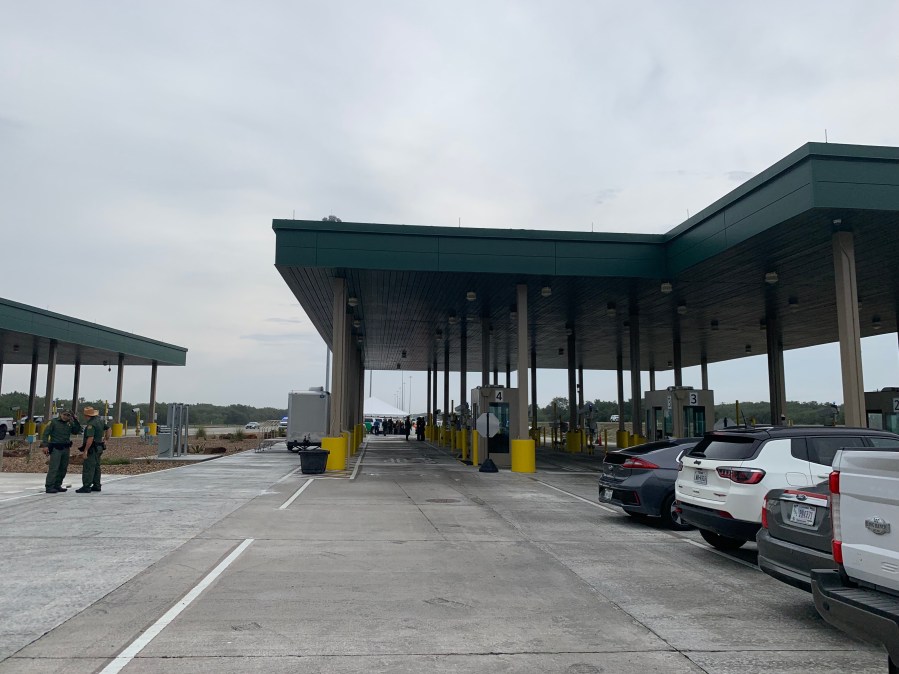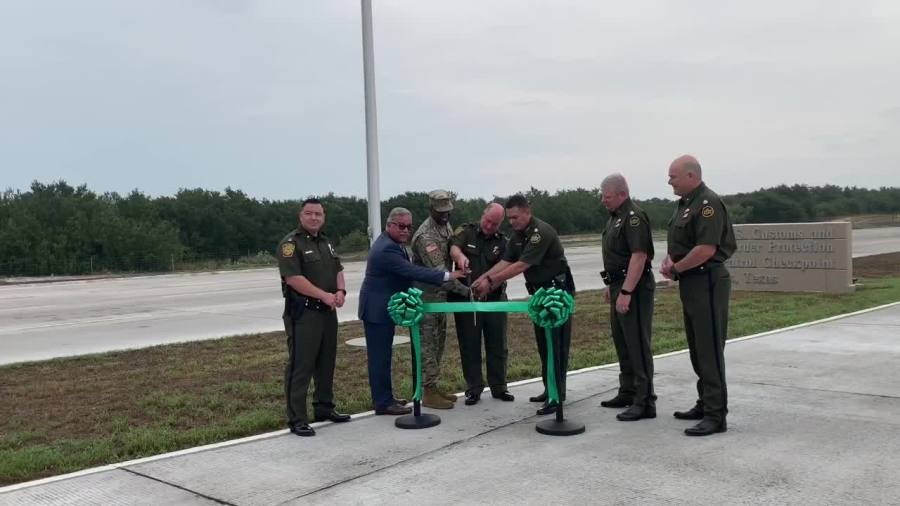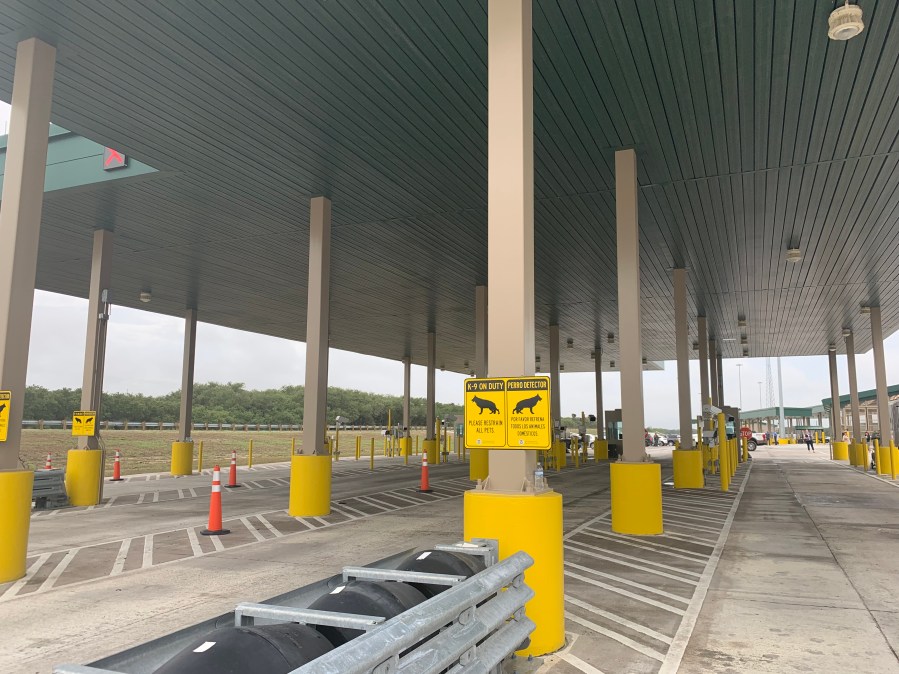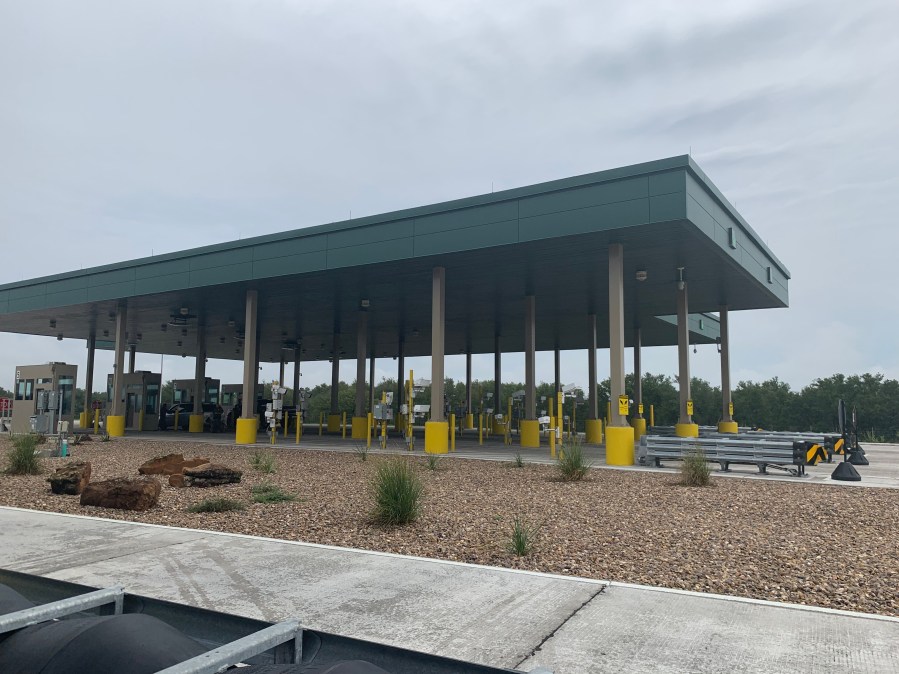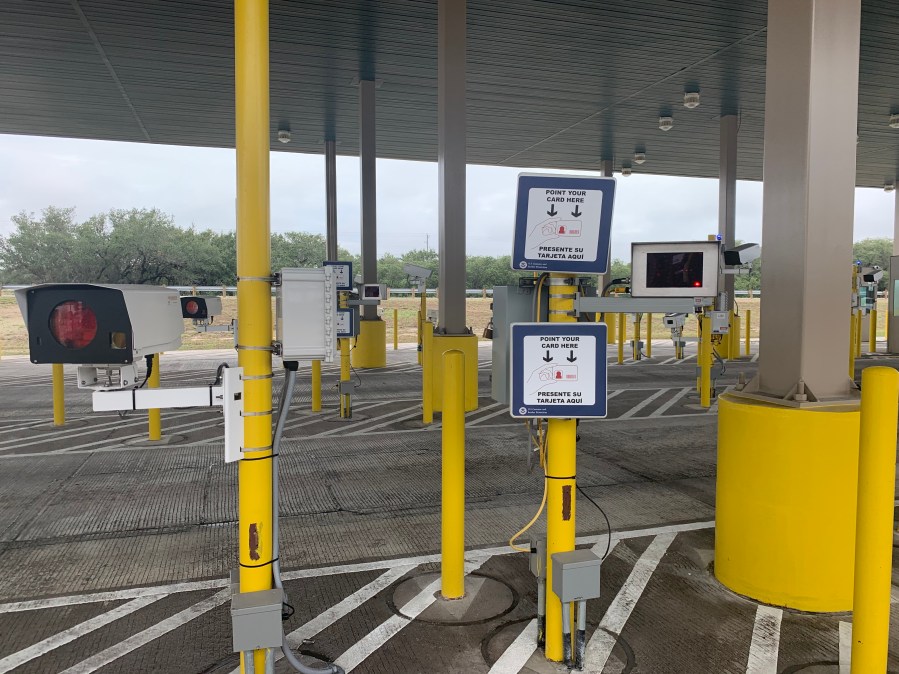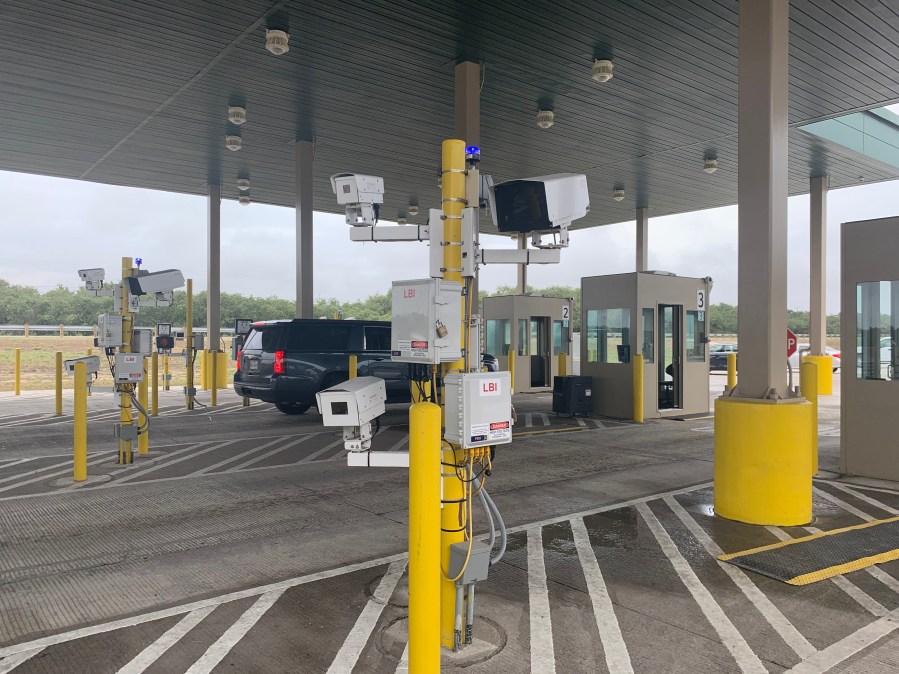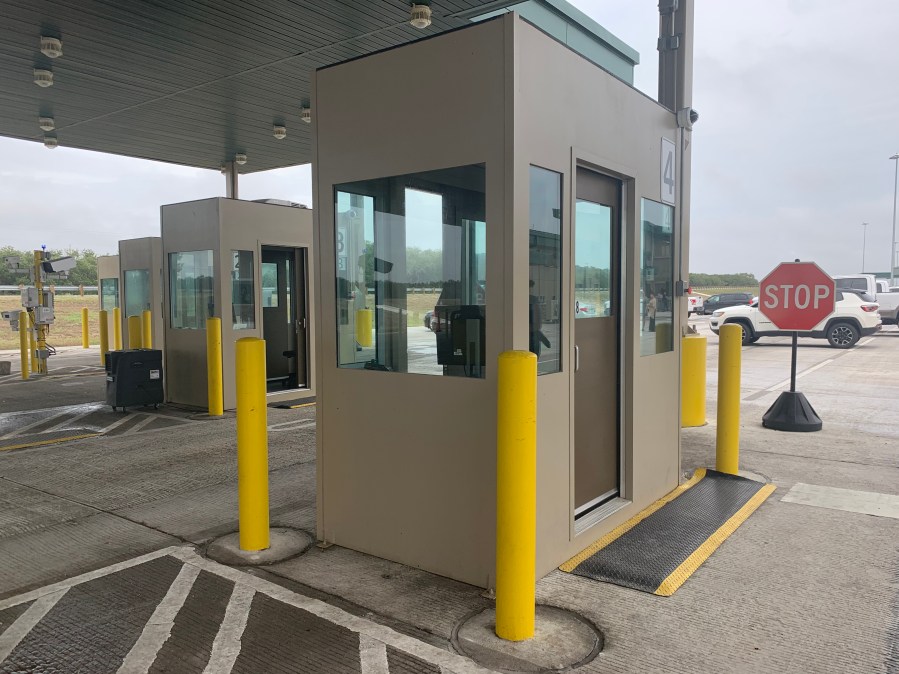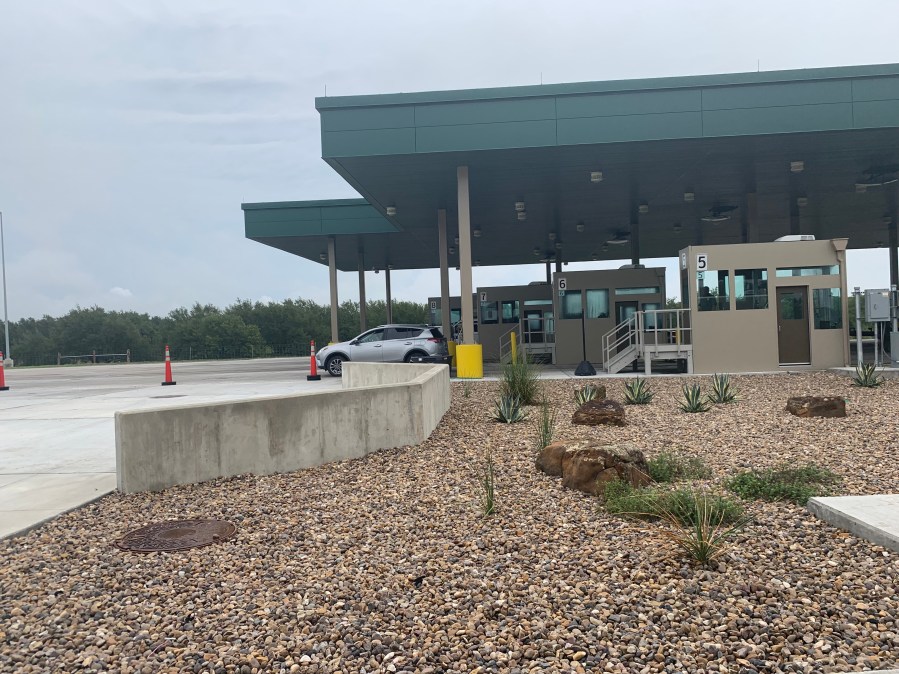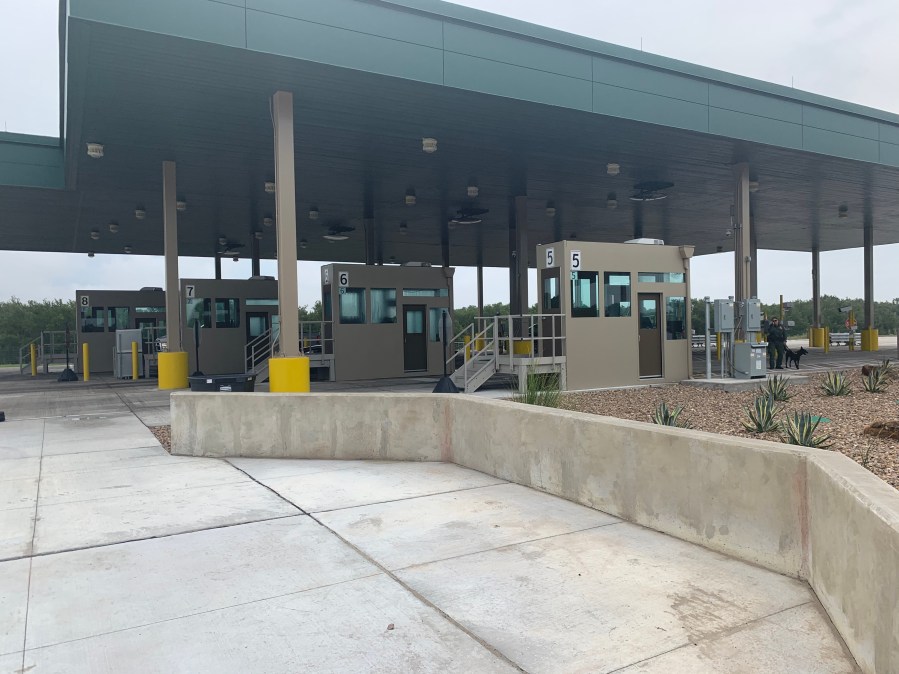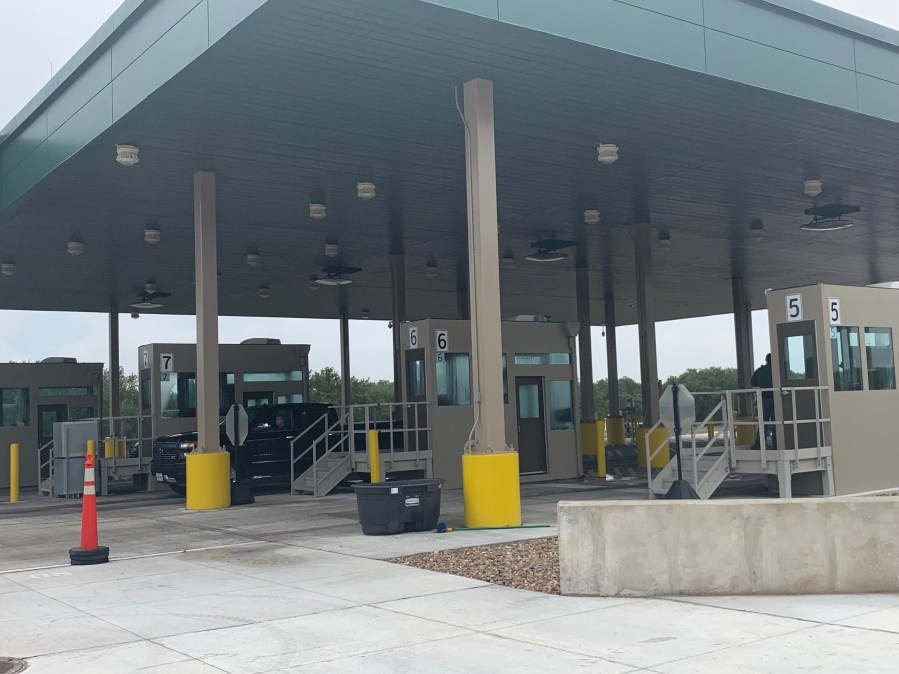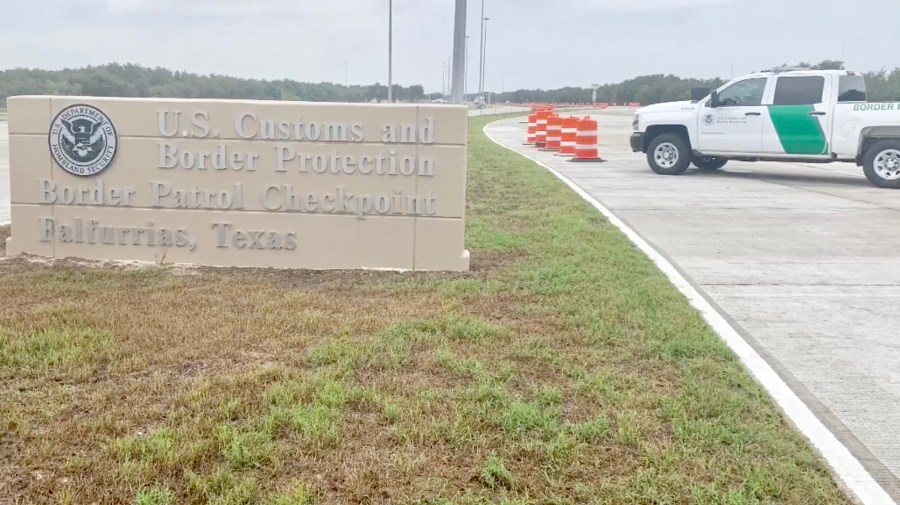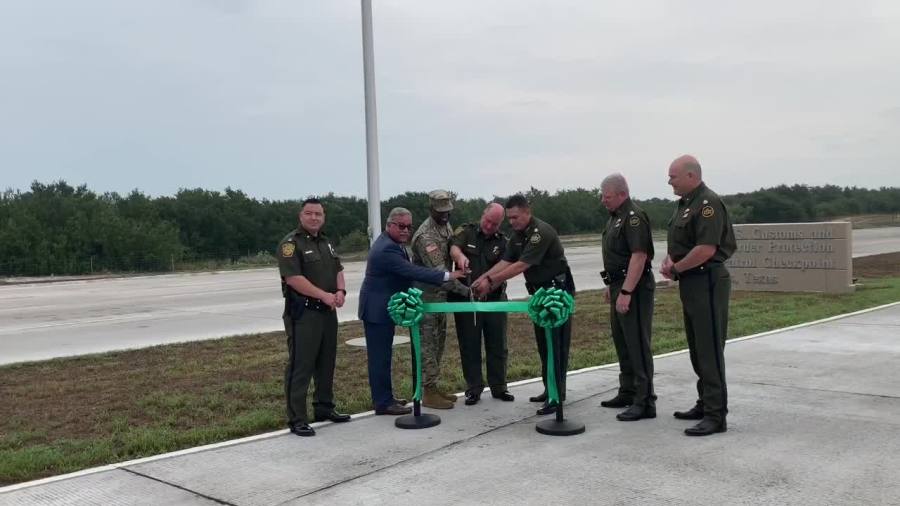FALFURRIAS, Texas (Border Report) — Officials with U.S. Customs and Border Protection and the U.S. Army Corps of Engineers on Thursday held a grand opening ceremony for a new $30 million Border Patrol checkpoint station, the most heavily trafficked inspection station on the entire Southwest border.
The new station, located on a South Texas highway about 65 miles north of Mexico, is equipped with innovative technology and several more inspection lanes, which officials say will help agents to better screen vehicles, and ultimately keep the public safer.
“This checkpoint is the biggest checkpoint, in terms of innovation, and will be a key checkpoint on how to build other stations in the future,” Juan Gutierrez, deputy patrol agent in charge of the Falfurrias Station told a crowd of 200 people gathered for the ribbon-cutting. “This station is going to be the envy, from the entire country because of what we have out here.”
The facility — which actually opened on May 1 to traffic — inspects an average of 10,000 vehicles per day, including 2,500 commercial vehicles. During holidays, like the Fourth of July, Gutierrez said agents can inspect up to 19,000 vehicles.
This area is part of the Border Patrol’s Rio Grande Sector, which is the busiest sector in the nation for migrant apprehensions.
The new station is equipped with eight primary inspection lanes and 16 secondary inspection lanes, eight of which are for commercial vehicles. There are two Z-Portals, or radiation detection portals, as well as license plate readers with Radio Frequency Identifiers, and on-site kennels for canine units.
“We’re the first Border Patrol station in the nation to have Z-Portal systems at a Border Patrol checkpoint,” said Thomas Slowinski, Border Patrol patrol agent in charge of the Falfurrias station.
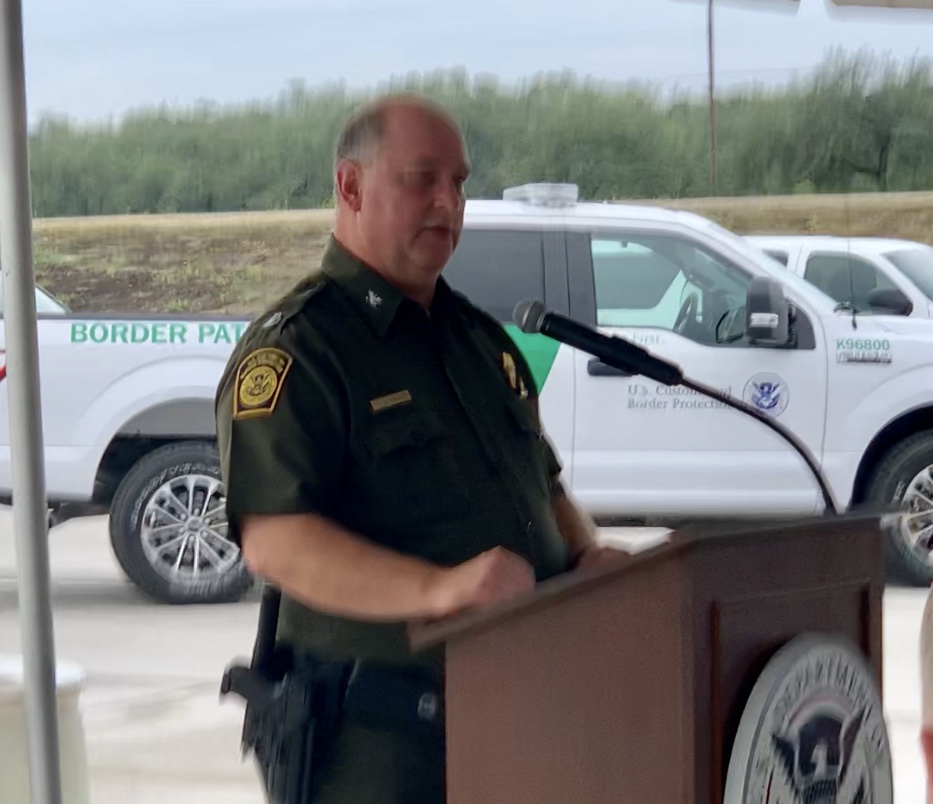
“The technology and the capabilities we have here today at this checkpoint it’s really tremendous. It’s a great opportunity for our agents to enforce the law. They’ll keep the country safe and provide good border security,” he said. “This facility has enhanced security and safety for all the agents. It’s going to be a tremendous place to work.”
Back in the mid 1980s, the first checkpoint opened on this stretch of Highway 281, about 45 minutes north of McAllen. The highway was only two lanes wide, and agents inspected the undercarriage of vehicles using a “Walmart-bought ramp,” Slowinski said.
The checkpoint was upgraded in 1994 to three lanes, but eventually the traffic flow proved too much, and as the highway was expanded, so did the necessity for a better and bigger checkpoint inspection station, he said. The old station, which stood a few yards south of the new station, was razed.
Checkpoint is smuggling deterrant
The desolate brush here is punishing and over the years, hundreds of migrants have died trying to evade the inspection station by going around it and ending up in these isolated ranchlands. As a result, many migrants are smuggled into the trunks of cars, under agriculture and produce in cargo trucks or found in hidden compartments of vehicles, agents say.
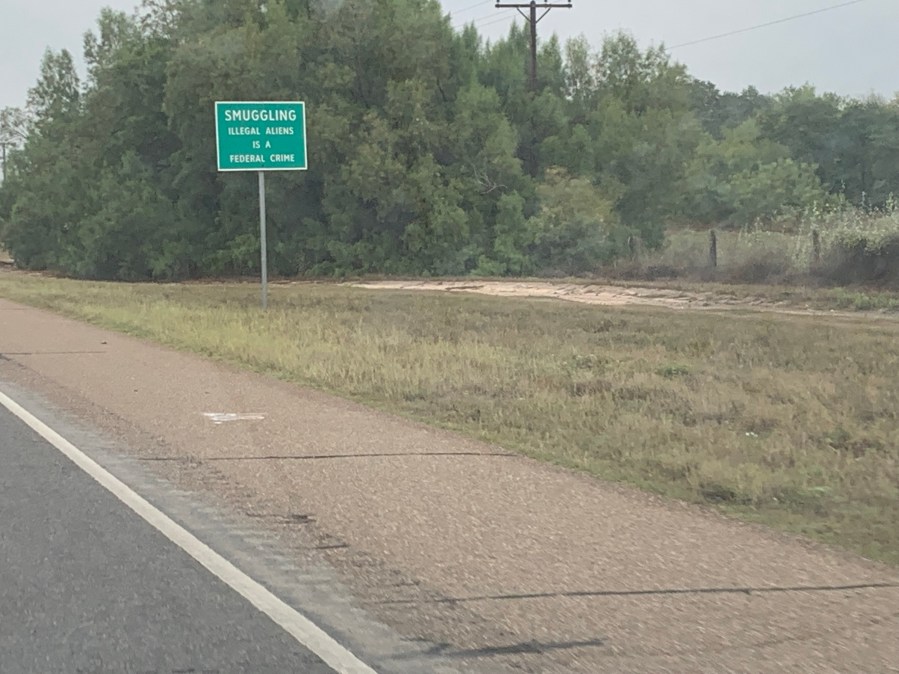
So far this year, agents at the Falfurrias checkpoint have responded to 750 smuggling cases and have “rescued” migrants who were smuggled from 200 vehicles, Slowinski said. They have prosecuted 400 smuggling cases originating from this checkpoint.
Drug and bomb-sniffing canine units patrol every vehicle that passes here and all drivers and passengers are asked by agents if they are American citizens.
Vehicles that trigger special attention by agents are routed to a secondary inspection station where further tests are conducted.

The facility has the capacity to eventually have 12 inspection lanes, which will likely be necessary if a northern causeway leading to the popular tourist beach resort town of South Padre Island is built.
Slowinski called the new facility a “force multiplier.”
Said Col. Kenneth Reed of the U.S. Army Corps of Engineers: “This facility will enable this station and throughout the Rio Grande Valley to handle the capacity and have the capabilities to do the mission that we need for our nation. That’s the value that this facility brings.”
Sandra Sanchez can be reached at SSanchez@BorderReport.com.
Visit the BorderReport.com homepage for the latest exclusive stories and breaking news about issues along the United States-Mexico border.
